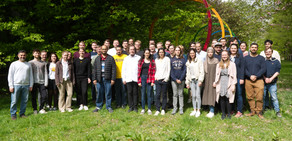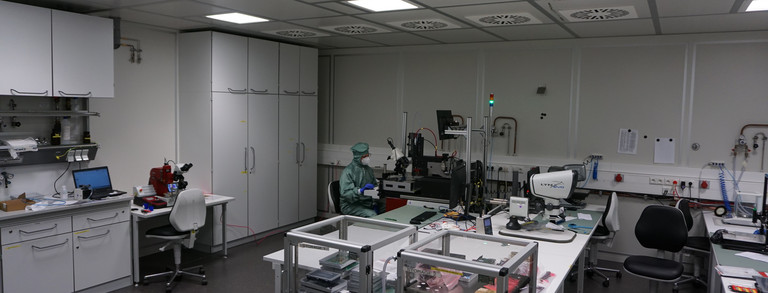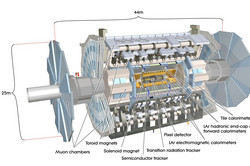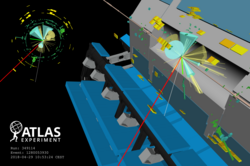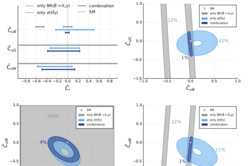Particle Physics
Our research group works on various questions in the field of experimental particle physics. We mainly use data from the ATLAS experiment at CERN. Additionally, the data are interpreted in collaboration with theoretical groups and exploratory studies are performed for new projects, e.g. the FCC-ee.
ATLAS is one of the four large experiments at the Large Hadron Collider (LHC) at the CERN research center near Geneva. At the center of the 44-meter-long and 25-meter-high detector, protons collide at a center-of-mass energy of 13 TeV, providing insight into processes that occurred shortly after the birth of the universe. Since we are part of the ATLAS collaboration, the data sets recorded at CERN can be analyzed in Dortmund, e.g. to search for very rare processes or to precisely measure the properties of particles. The processes studied might provide answers to previously unresolved questions of the Standard Model of particle physics. The very large amounts of data and the corresponding statistical interpretations are performed with the help of computers and complex algorithms, e.g. machine learning techniques.
The research of our group focuses on the top quark - the elementary particle with the largest mass. We are interested in the properties of the top quark, e.g. its couplings, the production mechanisms, e.g. cross sections, as well as connections with potential new phenomena, e.g. flavour-changing neutral currents, heavy top-quark partners, or rare decays. In a joint project with the Hiller Group, some of these measurements are interpreted in the context of effective field theories. Further collaborations exist with the University of Clermont Auvergne, in which the expected precision of top-quark measurements at FCC-ee is estimated. Within SFB 1491, we work on the connection of particle and astroparticle physics, in particular on the tuning of Monte Carlo generators using data sets from both fields.
Funded by:
- BMBF 05H2021
- DFG KR 4060/13-1


